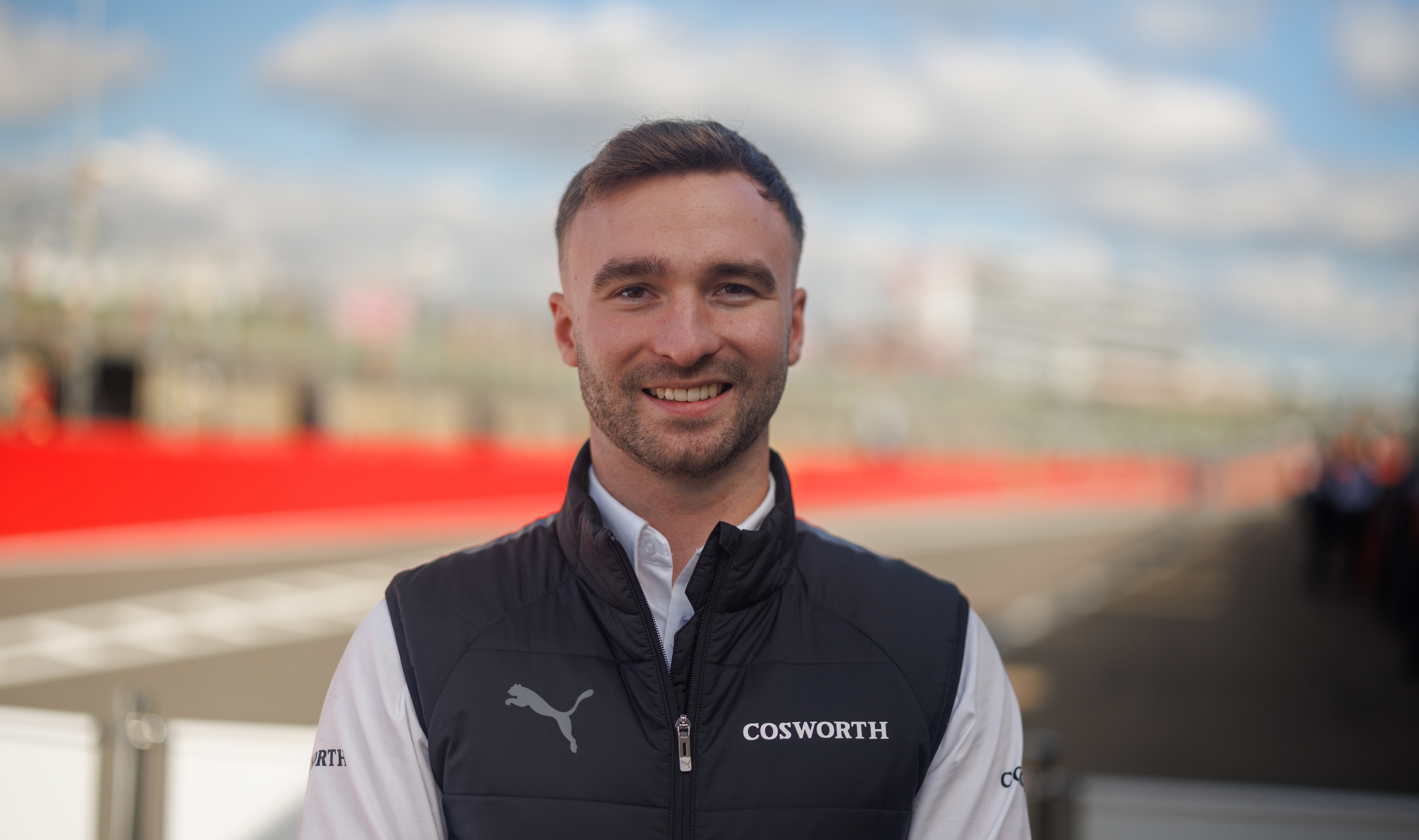
In the high-octane world of the British Touring Car Championship (BTCC), it takes a unique blend of technical finesse, focused dedication and relentless passion to stand out. Ryan Hopper, a graduate applications engineer at Cosworth, brings all that and more.
In this next instalment of profiling team members, we sat down with Ryan to discuss his journey from studying automotive engineering to being on the frontlines of Cosworth’s innovative programs, and what it’s like to be part of the team powering BTCC’s push into the future.
Can you talk us through your journey from studying automotive engineering to working as a graduate applications engineer at Cosworth?
My career pathway really started to take shape at Harper Adams, where I studied automotive engineering. During my placement year, I joined a BTCC team as the lead systems and performance engineer, making sure every sensor and electronic component on the car was running smoothly. That’s where I first connected with Cosworth’s trackside support team, a link that led me to complete my Master’s Engineering Project with them. It was like a crash course in motorsport engineering, quite literally.
Tell us more about that Master’s project. What was it all about?
The project revolved around Cosworth’s axial flux hybrid system – a unique, outrunning motor where the rotor spins around the stator. Getting a rotor temperature reading in such a setup was a real challenge, as traditional sensors just couldn’t do the job. So, I created a model to indirectly estimate the rotor temperature in real time, using the existing sensors and Cosworth’s Antares 8 ECU that was fitted in every car on the grid. It was an exciting innovation, and it really speaks to Cosworth’s ethos of bringing race tech to the road while staying cost-effective.
What stands out in your experiences since joining Cosworth as a graduate engineer?
The hands-on experience with Cosworth’s advanced technologies applied to the BTCC cars, which provide unparalleled levels of high-performance, safety, data flow and support. The engineers here encourage you to dive into complex problem-solving. The support from my colleagues has been brilliant – they’ve guided me through challenges that I’d have struggled with alone. It’s the perfect environment for growth.
In your opinion, how does motorsport – especially BTCC – drive advancements in on-road technology?
Motorsport is essential for pushing engineering, technology and design boundaries. The competition is fierce, which is what pushes us to keep innovating. In BTCC, we’ve proven the capabilities of a multitude of advanced technologies and systems in ways that is impossible to ignore
How does Cosworth’s Antares ECU play a role in supporting BTCC teams across the grid?
It’s probably the most critical component on the car. Without the Antares 8, nothing would run – the engine, related ancillary systems, the data teams rely on, all of it is connected through the ECU. It truly is the brain of the car.
What advice would you give to young engineers looking to make their mark in motorsport?
My advice is to work diligently and add value wherever you can. Never be afraid to go the extra mile and get hands-on experience early on if you can. It will give you a huge head start.